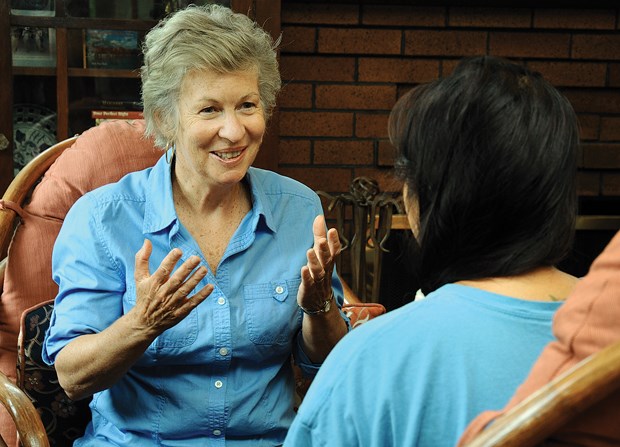Stress: It happens when we're overwhelmed, under the weather, on the clock, in a rut, low on energy, or high on caffeine.
North Shore counsellor Beverley Pugh says many people are constantly feeling preoccupied and failing to take care of themselves - both of which can be indicators of high stress.
Coping with those feelings of unease is sometimes simpler than you would think, says Pugh.
"People are not having enough fun. Most people are just working or have their heads down one way or another," she explains. "We need to be fed through the lighter emotions."
However, certain coping methods may provide a short-term solution while exacerbating a long-term problem.
"Sometimes we work hard and we go home and maybe we have a beer or we have two beers and watch TV and we feel that we're handling the stress well where in actuality all we are (doing) is coping with a situation but we're not really growing inside," says Pugh.
Bad stress can create a shutdown in our body either physically or emotionally, she adds, and we tend to produce excess adrenalin during periods of constant stress.
"Our body is always releasing chemicals and hormones that are based upon fight or flight," she says. "We get exhausted, we deplete ourselves, and then of course if it becomes chronic then we get into a depletion on a physical level in terms of heart or stomach."
That physical imbalance is often indicative of an unbalanced lifestyle, according to Pugh.
"In good stress management we want to have high active coping and periods of letting go and relaxing," she says. "We were designed with a chemical balance and we want to honour that and keep it."
Carrying high expectations and judging yourself harshly when you fail to live up to them is a frequent cause of stress, says Pugh.
"We simply try to do too much," she says. "We tend to go into judging ourselves in terms of whether we are good enough, what we're doing is good enough, so that produces a lot of worry."
When it comes to breaking a pattern of stress, Pugh recommends evaluating five key areas: lifestyle, physical health, emotions, philosophy and mentality.
"Where are your thoughts most of the time? Are your thoughts in the negative arena most of the time, the worrying arena?" Some people would probably be shocked if they saw the amount of time they spend on worry as opposed to feeling grateful or seeing what's really good in the moment, says Pugh.
She recommends examining the food you eat and the exercise you get, and she suggests seeking balance in your lifestyle.
When it comes to emotional needs, she suggests starting with two questions: "Am I laughing? Is my emotional body being fed or am I spending a lot of time being angry?" The philosophical area can seem more nebulous, but Pugh advises devoting yourself to whatever you feel is important.
"If it's religion, if it's spirituality, if it's nature, just make sure that you give it focus so that you have some kind of philosophical anchor in your life," she says. "A lot is possible. People just have to be available for it to happen and be prepared to make some kind of action commitment."



